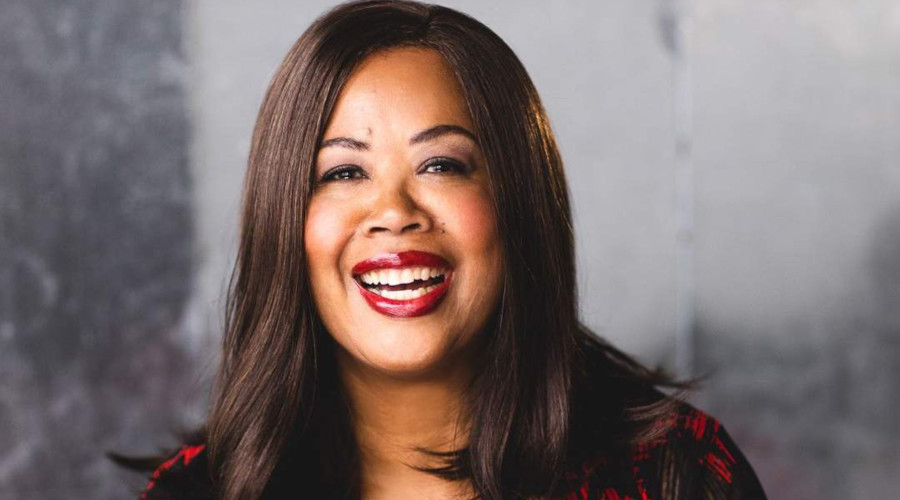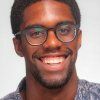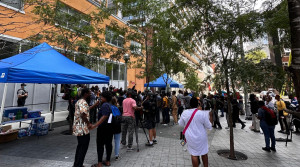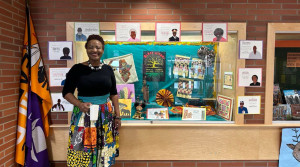Thornley-Brown was raised in Montreal but was born in Jamaica. When she was 18 she decided to begin tracing her genealogy because she was passionate about the subject and hoped following her curiosity would give her answers to important personal questions. Like many teens, she struggled for acceptance, at times feeling unwanted and out of place in society and searching for belonging.
Thornley-Brown began unpacking her genealogical makeup and eventually learned that she has roots in England, Scotland, Sweden as well as Africa through autosomal DNA testing. Specifically, Thornley-Brown discovered she has Igbo, Kassena, and Yoruba ancestry. It turns out, her distant relatives were also trying to uncover their family history and reunite families separated by the Transatlantic Slave Trade.
Earlier this year, Thornley-Brown was elected to the board of directors of the Ontario Genealogical Society’s (OGS) Board of Directors. OGS is a registered non-profit corporation devoted to helping people discover their family history. Thornley-Brown has a special interest in untangling complex family tree branches and hopes to help Ontarians do the same. There are nearly 250,000 Jamaican-born residents in the province and there are more Facebook groups dedicated to Jamaican genealogy than any other country.
What made you first want to look into your family genealogy?
In Montreal, there weren't many Black people in my neighborhood but there were a lot of European immigrants, Chinese immigrants, etc. I started to face rejection when it came to courtship and discrimination in terms of employment and that made me really resentful and bitter for a while. And it made me really want to know where I belonged and where I was accepted because it was certainly not here.
It got so bad that there was one instance where some supposed friends of mine pulled me and this white guy apart. We weren’t dating but I certainly liked him and we were walking up a hill together and one friend took his arm and one took mine and they pulled us apart. I heard one of them say, if you can keep away from this boy then everything will be okay. Part of that story is in my book.
Can you walk me through your process of tracing your African roots?
First, I saw an article in Reader's Digest and it suggested certain steps like interviewing all of your oldest relatives to find out what they know and record that, which I did. They suggested looking at records, like gravestones, as well as birth, marriage and death certificates. That presented certain issues within the Jamaican context because you'll have children born to couples that aren't married, so, the birth certificate may only have the mother's name. But if you get the marriage certificate, you'll often find the father's name.
So, I traced it that way and created a paper trail, then when commercial DNA testing came about I signed up, first for 23andme and then for Ancestry. I saw that I had matches with people from Africa so I contacted the individuals and I found out what tribes they were from. I also uploaded my raw DNA to GEDmatch and I got more matches to Africans there; the biggest group was Igbo and I also found a Kassena cousin. They recorded exactly where and how my ancestor was abducted and brought into slavery. So that’s step-by-step what I did.
What’s something interesting or surprising you learned about yourself and your family from looking into your genealogy?
I had never even heard of Kassena before, so that was a big surprise when I started finding people I matched with. The other thing that surprised me was how much British ancestry I had on my father's side. I really wasn't expecting that because my father has a very dark complexion, so that was a total shock to me.
{https://www.youtube.com/watch?v=-3eaQxaBvYY}
Can you tell me about your experience when you went to Jamaica to walk in the footsteps of your ancestors?
I found out that my great, great, great grandparents were a mixed and interracial couple. She was biracial and he was from Lancashire. I found out that they were from a part of Jamaica called Vere Parish. I got a driver to take me there and I arranged to meet the head of the Portland Cottage Citizens Association. Based on a map I had, he took me to three different estates where my family had been and when we were at one estate, I just looked around, and I said, “I can practically see him riding on his horse.” I just felt a connection; that’s the only word I could possibly use to describe it. I spent a full day doing that and then I went to Kingston and had a cousin drive me to the address where my great-grandfather and his parents, who were born enslaved, lived. They took me to the place where my grandfather was born, we hadn't been able to get in touch with the owner but we rapped on the gate and asked if we could have a look around, and the people who live there said yes. So I got to look around and see where my grandfather was born.
Experiences like that have an impact, so it's not surprising that when I started writing again, I wrote a story based on what I uncovered about that branch of my family. I wrote a TV series and a novel to go with it. The characters became more real to me and I preserved the names of people. There were only two characters who were fictional, all the rest were people who lived 200-odd years ago, in Jamaica, the United Kingdom or Ireland.
What are some of the challenges you and the OGS have come across trying to get these histories and DNA information?
As I mentioned about the Jamaican experience specifically, there was a period where the father's name didn't go on the certificate which leaves you in a situation sometimes where once you do your DNA testing people find out that the person they thought was their father or grandfather isn't, then it becomes a challenge to piece together your actual genealogy. At that point, it becomes a matter of contacting people who are your DNA matches and trying to piece things together from there. But there have been several instances in the Jamaican DNA and Jamaican genealogy groups on Facebook, where people have had that happen and then they've had to sort it out.
How have you benefited from learning about your genealogy?
Because I had faced so much rejection and I was feeling like my confidence was undermined. It really helped give me a sense of roots, a sense of belonging, a sense of identity and it's extremely important to me. That certainly helped me build my confidence and made me realize that there are some people in this world who maybe don't like me but that's their problem; I'm a person with worth, I'm a person with history. I was impressed by some of what my ancestors had accomplished, for example, my great-grandfather was a mechanical engineer who worked on the Panama Canal. He was also involved with projects in Jamaica for putting in the tracks and electrifying the tram car system. And when they converted the streetlights in Kingston from gas-powered to electricity, he was involved in that project. So, I was quite proud that this man from my family born in the 1850s had that impact. It was great.
What have you heard from the Caribbean people you’ve helped trace their family histories?
We have a group called Jamaican DNA Roots on Facebook and the members have been helping each other when we're stuck. It’s been a really transformative experience; when you suddenly feel that connection with people who lived hundreds of years ago and it's something that as the descendants of enslaved people, we haven't had that opportunity, so it's wonderful to live in a time when that’s now possible.
{https://youtu.be/r9dOv4Bv9y8}
Why are initiatives like what the OGS does and the African Kinship Reunion Project that help reconnect families who were separated by the North Atlantic slave trade important and valuable?
I am not part of that program but I have benefited from their work. There was an African-American woman who went to Africa and distributed DNA kits because this community really wanted to connect with their cousins across the miles. Then they uploaded that DNA to GEDmatch and Ancestry and then invited anybody who connected with them and passed a certain threshold to get in touch with them. Without that groundwork, the discoveries I made would not have been possible, so that's very meaningful. The Ontario Genealogical Society does really wonderful work because they're helping people from various backgrounds to be able to find out more about their families, their roots, answer questions, and solve mysteries. One thing that’s really important when we talk about Jamaican and Caribbean people, is most of us don't realize the extent of the mixture, I certainly didn't.
Organizations like the Ontario Genealogical Society do have a lot of information about British and Scottish families as well as information about Black history and the Black experience in Ontario. Based on their records they can help people unblock some of these brick walls and get answers to some questions; it's very powerful work.
Do you have any suggestions or recommendations for what someone can do once they’ve learned more about their history and genealogy?
Be prepared for a lot of surprises because you're going to find unexpected results. For example, my results showed that I had 1% genealogy from Sardinia and I thought, “what the heck do you mean? I'm Jamaican, where does that come from,” because I didn't have a clue. So I posted in a couple of groups and on my feed and I got an immediate answer from a distant cousin from a branch of the family that I didn’t even know.
He explained that it was from a British man who had Sardinian roots, who went to Barbados and one of his sons became a captain who ended up in Jamaica. And from that one man, we have hundreds of thousands of Jamaicans who are showing that 1% Sardinian DNA. It's on the bent branch of the family descended from Burton. There are lots of surprises so be open, it really changes the concept of who you are. For me, it didn't change my identity — I'm a proud Black woman and I always will be — but I do understand now that I have roots from many different places. Also, seeing the extent that some British men went to free their children or grandchildren, takes away some of the bitterness. Not to say that these men were perfect. These were often men who went to Jamaica as young men and they worked as bookkeepers or as bush overseers from the United States and then later in life, unfortunately, some of them became enslavers. Others got money from different sources later in life and they did take that step of freeing mothers, children, and in some cases grandchildren, so you can't tar everybody with the same brush.
In terms of reaching out to cousins, people have had different experiences. I found that none of my white cousins had a problem connecting with me, and in fact, they were very helpful. I haven't had one refuse to talk to me, though I did have one Black cousin who initially didn't want to have anything to do with me but after a couple of years, he actually sent me a Facebook friend request, so he changed his mind. Then I had another cousin, the son of a first cousin. And I don't know why but I met him and then for whatever reason he decided he didn't want to talk to anyone, so be prepared for that. It’s something I’ve also seen in the Jamaican genealogy groups as well.
I guess I’ve been fortunate because I've only had two instances like that. A cousin I connected with reached out to mutual cousins in England and they didn't know much about genealogy or DNA and they were shocked at the amount of information I had about their father and found it very upsetting. So, be prepared in terms of what you find out about your family and be prepared that different people are going to have different reactions to you; some people will be thrilled to connect, other people won't want to hear anything about it, don’t let yourself be traumatized by it.
Another takeaway is when I started to see these results, my initial response was “oh, it's a mistake. This isn't possible.” I remember saying to my mother when I got my 23andme results “This is clearly fake. How could these white people possibly be related to me? It just didn't fit what I thought and I dismissed it as a mistake but I was the one who was mistaken.
Registration is now open for OGS’ virtual conference which takes place September 8 – 10. The theme of this year’s event is “Diversity In Genealogy.”

 By
By 


